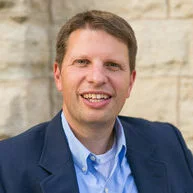How can pastors, teachers, parents, and other mentors foster attentive hearts in emerging adults, who are in the midst of the manifold distractions that tend to blunt a responsiveness to God and his work in the world and in their lives? Asking good and timely questions can be one of the most powerful ways we facilitate such attentiveness in these years.
Asking questions can turn a slumbering mind or heart toward God, waking emerging adults up to consider and reflect upon his character and work in the midst of the often numbing flow of life. As Paul David Tripp has argued, “Asking good questions is doing the work of change.”Paul David Tripp, Instruments in the Redeemer’s Hands: People in Need of Change Helping People in Need of Change (Phillipsburg, NJ: P & R Publishing, 2002), 173.
It is worth noting at the outset that asking questions (and then listening carefully to answers) is one significant way in which we demonstrate love for the emerging adults in our lives. It sets up the minister in a learning posture, desiring to know these individuals deeply by seeing the world through their eyes. It reveals a desire to understand their interpretations and worldviews. Pride Asking questions can turn a slumbering mind or heart toward God. often leads us to assume certain realities in others’ lives, responding to them on the basis of our own knowledge and experience. Without significant questions, in fact, there is a good chance that we will be addressing our issues and concerns rather than those among whom we minister. Asking questions reveals that we are ready to listen and ready to hear their hearts so that we may speak with wisdom, understanding, grace, and care. Love and listening are closely related indeed.
Yet in the process of mentoring emerging adults, question-asking also has the power to re-orient the direction of thought and attention. It asks these twentysomethings to step back and examine the mundane progression of daily experiences through the lens of God’s presence and work. At the end of a long day of activities and conversations with people, for example, a mentor may ask, “How did God reveal himself and his grace through the people you interacted with today?” After a day of outdoor work or play, a mentor might ask, “How did you see God’s power and handiwork in his creation? What did you learn about the wisdom of his design?” In the midst of daily work, a mentor might ask, “What have you learned about God’s nature through your work? What have you learned about the ways he has wired you and provided you with gifts and talents to be used in glorifying his name? What might be some of the ways in which your work could be directed to provide help for those in challenging situations?” In these ways, questions can open eyes to see God’s character and activity through the ordinary events of life.
Soul-Shaping Questions
One can imagine how this might be critical in a number of venues. In the academic lives of many emerging adults, for example, it is easy to lose attentiveness to God in the midst of the daily grind of reading, writing papers, and attending classes. A mentor in such situations can provide a valuable service by asking students pointed questions about their academic work: “How does your class in biology or math raise awareness of the intricate order of God’s universe?” “How does history reveal the nature of God’s providential hand?” “How does it reveal the ways he has used individuals to further his purposes?” “How does it show the blessings of the ‘great cloud of witnesses’ in shaping institutions and cultures for his glory?” “How do music and art point to the nature of God’s beauty and creativity?” Many students move through academic subjects blind to these greater realities. Conscious and regular reflection on these questions can lead to the development of postures of awe, wonder, humility, and gratitude for his marvelous character and works.
Questions raised during times of struggle or hardship also become important means of fostering spiritual attentiveness. In the midst of a relational struggle, for example, mentors are often tempted to engage in a version of problem-solving that is focused on mere “fixing.” Therefore, the questions asked reflect a desire to eliminate the conflict or problem rather than opening attentive eyes to God’s presence and purposes in the trials. If a student is experiencing relational conflict with a roommate,What are you seeing unearthed in your own heart? for example, the tendency is to want to ask questions that address the problem itself: “How might you share space more effectively?” “What are some of the practices that might reduce tension during stressful times?” Such questions are important, to be sure. But spiritual attentiveness requires an additional set of questions that might lead in different interpretive directions. For example, a question such as, “What are you seeing unearthed in your own heart during these tense situations?” might help to turn the focus in the direction of God’s good work in uncovering sin. A question asking “Why do you think this particular issue/problem has become so important to you?” might begin to reveal previously obscured idols of the heart.
The issue here is that the kinds of questions asked really do shape the formative direction of the experience. Problem-solving questions can furnish a context for changing circumstances, but soul-shaping questions generally lead in a direction that draws the attention to God’s character and his larger purposes in the midst of the circumstances. If an emerging adult is experiencing a challenging situation, I sometimes ask, “What does it mean to you, in the midst of this trial, that Jesus is interceding right now on your behalf” (Heb 7:25)? or “What does it mean that he delights in you and sings over you” (Zeph 3:17)? Such questions can bring the attention back to the never-changing love of God in these circumstances. Other questions might provide opportunities to probe the emerging adult’s sense of guilt, seeking to trace its source and discussing the unfailing love of God in the midst of failure. Questions might reveal an underlying current of fear, leading to a conversation about God’s sovereign hand. As mentioned, they can help to open eyes to idols: counterfeit gods of prestige, reputation, money, and security. Part of this, as Tripp suggests, is that we want to engage emerging adults not just in their problems but in their “experience of the situation, problem, or relationship.”Paul David Tripp, Instruments in the Redeemer’s Hands: People in Need of Change Helping People in Need of Change (Phillipsburg, NJ: P & R Publishing, 2002), 127. We want to be able to discern their views of God, self, and world through their reactions to and experiences of the situations of their lives. By getting to these heart issues, mentors can turn the gaze away from problem solving and toward the attentive, soul-shaping work of the Holy Spirit.
Helping Them Ask
While mentors can spark attentiveness through such questions, ultimately the desire is for emerging adults to begin instinctively asking these questions on their own. Since questions set the stage for the way they interpret the world, good and bad questions can serve as key forces for positive or negative patterns of thinking and living. A recent student of mine, going through a time of suffering, repeatedly asked, “Why is this happening to me?” Such a question has its place, but it also produces a particular kind of search. It established a context for seeing herself as the source of her pain and as her own savior (“If I can just change this about myself, then…”). When I asked her, “Where is God’s presence especially evident in this situation and how might this display his loving care for you?” it opened up a different mode of interpretation that placed God, rather than herself or her problem, at the center of the narrative. We often speak of ministry in terms of helping emerging adults develop the right answers to the questions of their lives. Perhaps we must also recognize the critical ministry importance of helping them ask the right questions, questions that lead them into, rather than away from, the presence of God.
Big-Enough Questions
When considering the kinds of questions to ask, ministers should keep in mind Sharon Parks’ admonition to make them “big enough.”Sharon Parks, Big Questions, Worthy Dreams; James Fowler, Becoming Adult, Becoming Christian: Adult Development and Christian Faith (San Francisco: Jossey-Bass, 2000), 137. They should be confronted with questions that ask them to make sense of the world and their place within it, exploring critical issues of meaning and purpose. In addition, questions should also be “big enough” in that they lead emerging adults to be attentive to God’s character and work in the full scopes of their lives: past, present, and future.
For example, looking at the past, a mentor might ask, “How has your past predisposed you to see God? Yourself? Spiritual formation?” “Are you able to identify any generational sins? How do you guard your heart against these?” “Describe a particularly fulfilling time or experience in your past. What does this tell you about what you long for?” Focusing on the present, a mentor might ask, “What is becoming more important to you over time? Less Important? Why?” “Through your experiences, what are you learning to love?”We must help emerging adults see their own stories within the larger biblical story that defines them. “How are you responding to current challenges? What might God be trying to show you about his character or your character in these situations?” “Where do you tend to find comfort and support? Are these healthy or unhealthy?” Regarding the future, mentors may pose the following: “What is your vision of yourself in ten years? What does that mean for your present life?” “If your current trajectory continues, what will this look like in ten years?” “Which adults would you like to imitate? What qualities do you admire in them?” “How will you translate your current commitments into the workplace or home? What challenges do you expect to face along these lines?” Such questions can help emerging adults see God at work in their whole stories. Their own life history becomes a sacred autobiography that is permeated by the divine presence.
As Christians, however, developing “big enough questions” means that we are also regularly asking questions that move beyond emerging adults’ own narratives to the larger gospel narrative, helping them see their own stories within the larger biblical story that defines them. Such questions will probe God’s past, present, and future work and ask them to consider their own situations in the light of these solid and unchanging realities. Unless questions bring them to this larger story, they will inevitably hit a wall at a growing self-awareness, missing out on the rest, strength, and confidence that comes through a careful consideration of the sovereign grace and power of God throughout history.





Comments
Be the first one to make a comment!